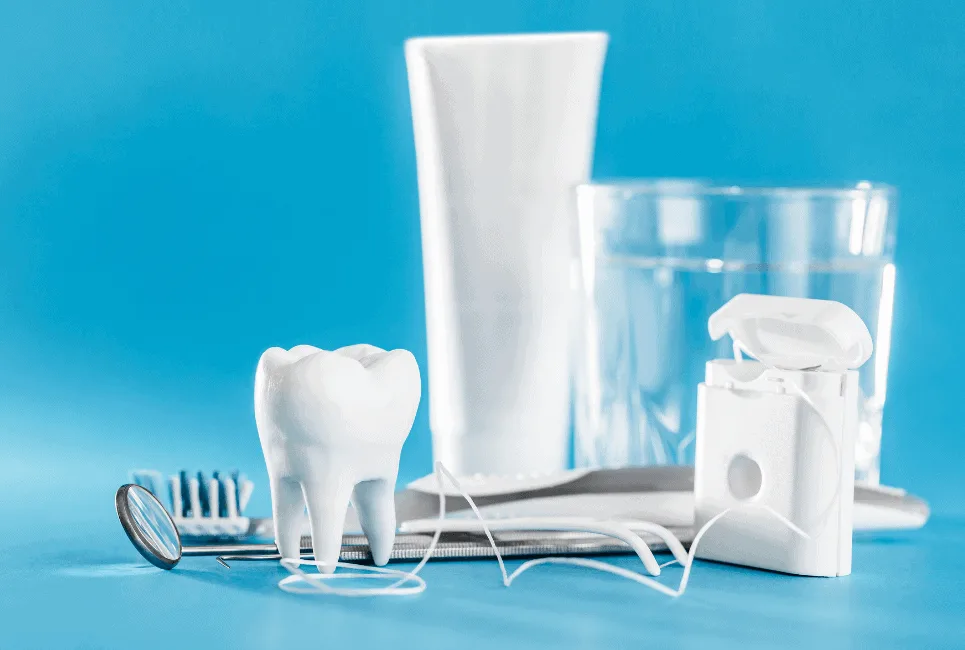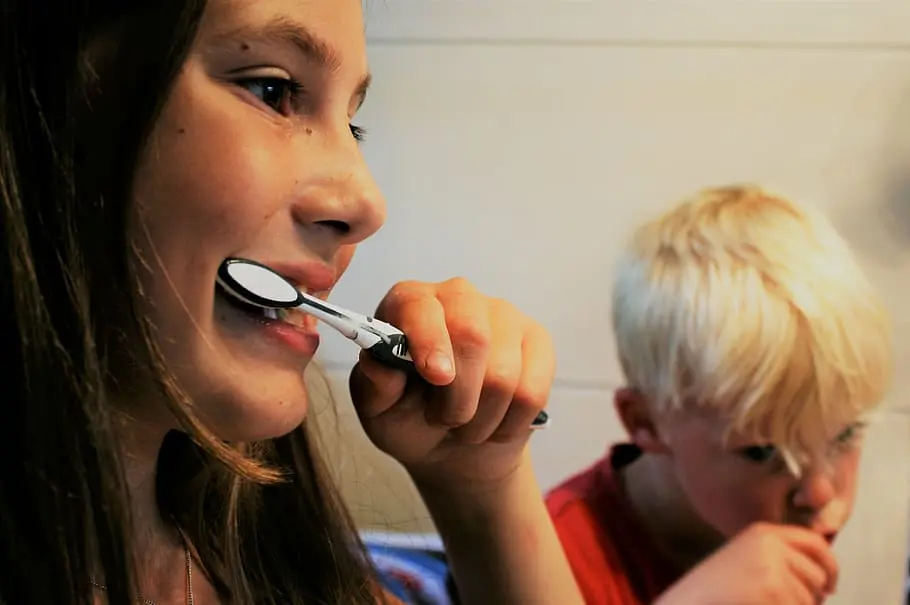- How to Find the Best Electric Toothbrush for Braces - August 7, 2021
- Best Mouth Guards for Braces: Top Brands to Consider - August 5, 2021
- Quip Toothbrush Review: What is Quip and Why Should You Choose it? - August 1, 2021
Guide to Oral Hygiene and Care – Expert Opinion
Why Your Oral Health is Important
Many people will refer to the mouth as the window to our body. It is well known that our oral health is directly linked to our overall health. Many people simply don’t know why or how they should maintain good oral hygiene and care habits and they wait until they are in pain or there is a dental emergency to go to the dentist.
Routine dental visits are important because they are the first step in developing good oral health. The dentist will evaluate you for several oral health conditions and guide you on how to practice maintaining your dental health at home. Once you develop a good relationship with a dentist, you will establish a “Dental Home,” or place that you feel comfortable getting your dental needs met.
Poor oral hygiene habits and avoiding the dentist only delays the inevitable – dental problems that are expensive, uncomfortable, and pose a risk to our overall well-being. Don’t forget poor oral care leads to decayed and broken teeth that affect how we feel about our appearance and how we present ourselves to others.
The Importance of Good Oral Health
Did you know that over 30% of Americans have untreated tooth decay? While many people think their dental problems are genetic related, most dental issues like tooth decay and gum disease are actually caused by poor oral hygiene and high consumption of sugary foods and beverages.
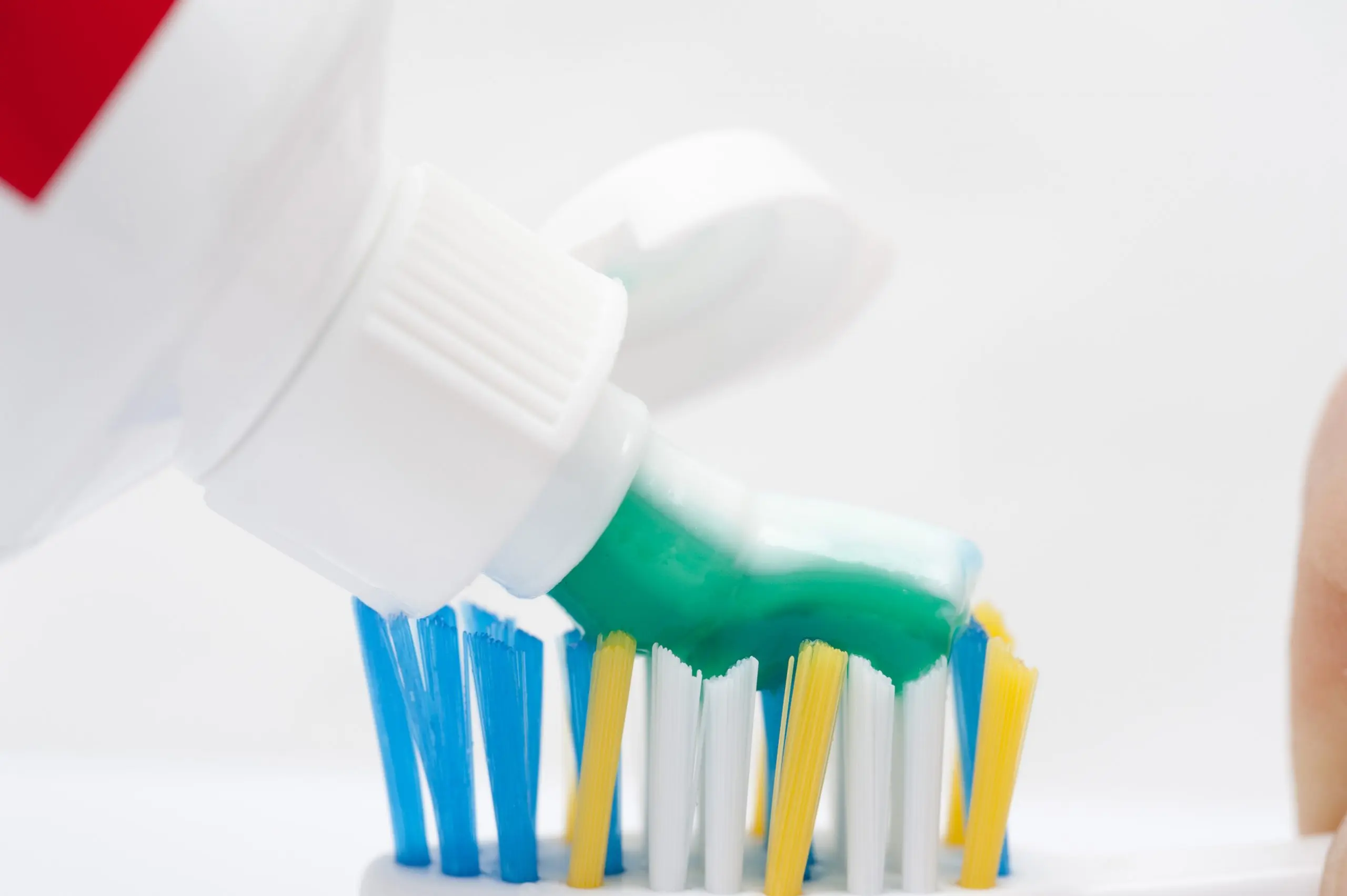
While there is a small genetic component that can affect your health like a predisposition to diabetes or heart disease, the majority of dental problems can be avoided with proper oral care. Here are some of the ways good oral hygiene can help prevent several dental problems:
Good Oral Hygiene Prevents Cavities
Practicing good oral hygiene can help prevent tooth decay. Did you know that tooth decay is formed by a combination of the plaque and bacteria in our mouths and the food we eat?
When we consume a diet of high sugary foods and beverages, the bacteria in plaque that remains on our teeth use the sugar in our foods to create an acid. The acid is strong enough to break down tooth structure and create a hole, or dental cavity.
Good Oral Hygiene Prevents Gum Disease
By brushing our teeth twice daily with fluoride toothpaste, we help eliminate plaque debris sitting on our teeth for long periods of time. Plaque forms when sticky substances like candy, soda, and sugars join with bacteria to produce a soft film.
The sticky foods we eat frequently feed the bacteria to keep growing and producing more. Plaque is often yellow and darker, which makes our teeth look less white. Once the plaque is hard enough, it becomes a substance called calculus and you will need it professionally scraped off to remove it.
Gum disease develops in two ways. Gingivitis is the first step of gum disease where gums are often red, swollen, and bleeding. It is caused by poor oral hygiene and the formation of plaque and calculus debris left on the teeth and gums for extended periods of time.
Fortunately, gingivitis is a reversible condition with good professional cleaning and improved oral hygiene. If left untreated, gingivitis can develop into periodontal disease, which is a more severe condition. Periodontal disease is associated with bone loss, tooth mobility, and tooth loss.
According to the National Institute of Dental and Craniofacial Research, periodontal disease is the leading cause of tooth loss in Americans and it is simply avoidable.
You Might Be Interested: Best Toothpaste for Braces
Good Oral Hygiene Prevents Bad Breath
Did you know that our tongue harbors the most bacteria in our mouth? Practicing good oral hygiene habits like brushing your tongue can prevent the common condition of halitosis, or bad breath. Bad breath develops when bacteria from colonies on your tongue releasing foul sulfur smelling compounds.
To prevent bad breath, you should brush your tongue with a toothbrush or use a tongue scraper to remove the coating of bacteria. You can also use an anti-bacterial mouth rinse to help remove bacteria from your tongue and keep your breath fresh. This will help improve the appearance of your tongue, prevent bad breath, and improve your taste sense.
Good Oral Hygiene Prevents Overall Health Problems
Poor oral hygiene can lead to periodontal disease, which inevitably can affect your overall medical health. This is because when an abundance of bacteria is left in your mouth from not brushing or flossing, it can travel into your bloodstream and contribute to plaque found in cardiovascular disease.
Gum disease is an inflammatory condition so people with underlying health conditions are more at risk of worsening their medical condition with poor oral hygiene. The most common health conditions poor oral hygiene and gum disease is associated with are:
- Heart Disease: People with gum disease are 2 to 3 times more likely to have a heart attack or serious cardiovascular event.
- Diabetes: Gum disease increases your risk for complications with diabetes and makes it difficult for someone to fight infection.
- Rheumatoid arthritis: People with rheumatoid arthritis have a greater risk of developing gum disease than people without the inflammatory condition. Studies also show that people with gum disease have an increased prevalence of rheumatoid arthritis than those without the condition.
- Pre-term labor: Studies show that gum disease is linked to pre-tern labor and low-birth-weight. This is due to chemical signals released in people with periodontal disease that can trigger premature birth.
- Stroke: You are more likely to develop a stroke with periodontal disease than without. This could be due to inflammatory markers in gum disease and hardening of large arteries and narrowing of blood vessels in the brain.
Good Oral Hygiene Saves You Money and Time
Good oral hygiene is simply much more cost-effective time-wise and financially-wise than poor oral care. By neglecting your oral health, it can lead to tooth decay and gum disease. To repair tooth decay, you will require a dental filling or crown.
In advanced cases, tooth loss means you will need a restorative replacement like a dental implant, bridge, or denture. Gum disease can lead to tooth loss and may require surgical procedures like grafting to help maintain your teeth, bone, and surrounding tissues.
Dental care is much more expensive financially and will often require several dental visits and much of your time in the chair to restore your oral health. It is much wiser for your wallet to simply maintain good oral hygiene habits at home.
Simple Ways to Practice Good Oral Hygiene Habits at Home
There are so many simple and cost-effective ways to keep up with your oral hygiene and establish a lifetime of good dental health. Here are the top ways to help improve your smile.
Brushing
Your dentist recommends brushing twice daily with a soft-headed toothbrush. You should try to brush for 2 minutes during each brushing session to ensure you properly covered all tooth surfaces. You may use a manual or electric toothbrush based on your dental needs and budget, but many electric brushes contain a built-in timer to help improve your brushing technique.
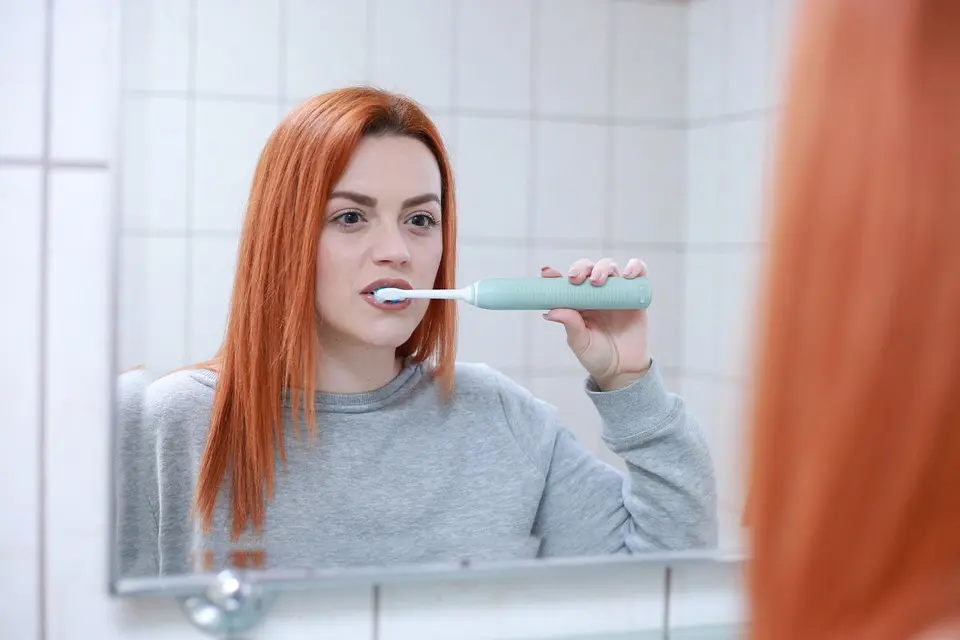
It is recommended to use ADA-approved fluoride toothpaste because it contains important minerals that help strengthen tooth enamel and prevent cavities.
Flossing
Without flossing, your teeth are actually only 60% of your tooth is getting cleaned! Floss helps remove plaque and food debris that sits between teeth that a toothbrush cannot reach and helps prevent cavities.
Floss also keeps your gums healthy to prevent bacteria from causing inflammation and gum disease. You can try all types of floss depending on your needs – traditional string floss, floss sticks, or inter-proximal brushes.
Mouth wash
A mouth wash is no substitute for brushing and flossing but is a great adjunct to your oral hygiene regimen. Mouthwash helps fight plaque and tartar build-up and many rinses are anti-bacterial to help fight gum disease. Some mouth rinses will even contain fluoride to help fight tooth decay or a small amount of hydrogen peroxide to help whiten your teeth safely.
Oral Irrigator
An oral irrigator or water flosser is beneficial for people who may have trouble with traditional flossing. A water flosser is not a replacement for flossing but can help remove bacteria between teeth by spraying a high pressured water to dislodge the food, plaque, and bacteria. It is a great option for people in orthodontics, with dental bridges, and who have a manual dexterity issue with conventional floss.
Routine dental visits
You should be visiting your dentist for routine check-ups and cleanings at least twice a year. Your dentist will obviously check for cavities but most importantly will be able to early detect any major dental issues like gum disease, oral cancer, and other dental-related issues that can affect your overall health.
Chew a sugarless gum
Who said improving your oral hygiene was difficult? If you are already a gum chewer, this will be a simple way for you to improve your oral hygiene and help prevent cavities.
A xylitol gum is beneficial because it contains a sugar that is not broken down in the traditional way sugar in our food does. Xylitol helps buffer your mouth against tooth decay because it has a higher pH and encourages more saliva production.
Stop smoking
Did you know that tobacco products (cigarettes, cigars, chewing tobacco) are one of the leading causes of oral cancer? Smoking can cause an increased risk for gum disease and it may compromise any dental treatment you may be getting like dental implants. Lastly, it’s simply a poor habit that is bad for your oral and general health and your wallet!
Limit your alcohol consumption
Like most things, a little goes a long way. Alcohol consumed in high quantities causes an increase in risk for tooth decay. This is because some alcohol like beer contains a high amount of sugar.
Also, alcohol causes a dehydrating effect, which means when your mouth is drier it is more likely to be at risk for tooth decay. Lastly, heavy alcohol consumption can impair your coordinator and the ability to focus on good oral care.
Limiting your sugar consumption
When you think about sugar consumption, don’t automatically assume it’s only about candy, soda, and other sweets. Many people cannot figure out how they get so many cavities when they don’t indulge in sweets like soda, etc.
The truth is the majority of tooth decay is caused by diets high in carbohydrates like bread, pasta, crackers, etc. because it breaks down to sugar, which causes cavities. Instead, try to choose a diet that puts phases on protein and healthy fats.
Drink lots of water: Water is always wonderful for your health. Staying hydrated helps flush and remove any food debris that may get caught in your teeth and protects your mouth from developing tooth decay.
Simple Ways to Improve Your Oral Care in the Dental Office
Going to the dentist for a check-up and professional cleaning is the first step in developing good oral hygiene. There are several preventative treatment options that are beneficial in promoting good teeth and gum care. Dental visits will also inform you can benefit from orthodontics and straightening your teeth.
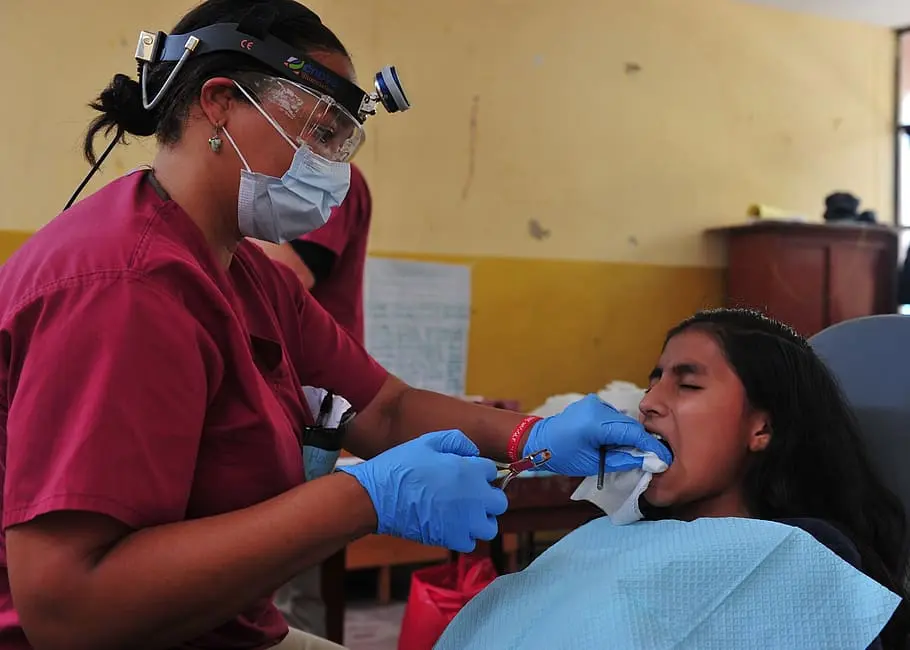
A straighter smile sometimes makes it easier to brush and floss and reach areas a toothbrush can’t when there is tooth crowding or misalignment. A cleaner smile makes your teeth appear brighter and less yellow!
Some of the most common preventative treatments offered in dental offices are:
Professional cleaning
Brushing and flossing regularly is great, but it in no way will replace a professional cleaning. This is because a professional dental cleaning will remove plaque and tartar that your toothbrush cannot reach. Also, the education and advice you will receive from your dentist and hygienist is invaluable!
Fluoride treatments
A fluoride treatment is a simple and cost-effective way to help prevent tooth decay. Fluoride helps re-mineralize the minerals of enamel and make it more resistant from breaking down when exposed to plaque and sugar.
Sealants
Both children and adults can benefit from dental sealants as they are one of the quick and low cost ways to protect your teeth and maintain good oral care. Sealants will help seal the deeper grooves of your teeth that are most susceptible to tooth decay.
Dental radiographs
X-rays are a major part of maintaining good oral care and they are usually performed during your routine oral hygiene visit. Most offices use advanced technology like digital x-rays so that it exposes you to less radiation than traditional x-rays and gives you more peace of mind. An x-ray can help diagnose tooth decay, bone loss, impacted teeth, missing or extra teeth, and cysts.
Long Term Advantages of Good Oral Care
There is no shortage of advantages of how good oral hygiene practices can positively impact your dental health and general well being. The major advantages of maintaining good oral care habits are:
- Developing long-term good oral hygiene habits
- Preventing tooth decay
- Preventing gum disease
- Preventing tooth loss
- Feeling confident in your smile
- Whiter and brighter teeth
- Lowered risk of heart disease, stroke, and diabetes
- Reduced chances of tooth sensitivity
- Less out of pocket expenses
- Less time wasted in the dental chair
FAQs
Should I brush or floss first?
Dentists use to say the order does not matter, but recent studies show that flossing first improves oral hygiene and reduces your chances for gum disease. This is because by flossing first, it can dislodge any food and plaque debris that can be swept away by brushing.
What is the best type of toothpaste?
You should be using an ADA-approved fluoride toothpaste recommended by your dentist. There are a variety of types of toothpastes depending on your personalized needs. There are kinds of toothpaste for people who need help with sensitivity, tarter build-up, whitening, and dry mouth.
Are x-rays safe?
Dental X-rays are used to help identify early problems like tooth decay, bone loss, tumors, cysts, and oral cancer. Dental x-rays are typically digital which is very limited radiation exposure so that the benefits of dental x-rays outweigh most risks. Speak to your dentist about the frequency of dental radiographs needed and remember, the healthier your teeth and gums are, the less often you will need x-rays!
Why do I have to go to the dentist if I have no cavities?
If you are fortunate enough to never have had a cavity you deserve a thumbs up! Tooth decay is prevalent in the United States, but many people have to go to the dentist for issues besides cavities. You should be going for routine visits to ensure there are no other dental issues like gum disease, impacted teeth, oral cancer, and orthodontic issues that need to be addressed.
Conclusion
Your oral hygiene is one of the most important aspects of your health. Neglecting your oral care can lead to a range of dental issues that can also affect your general health.
If you manage your oral care at home by brushing and flossing regularly and maintaining a healthy diet, it will make your dental visits less stressful and also less expensive! Good oral hygiene is one of the easiest ways to give you a smile you are proud of for years to come!
Read More:

